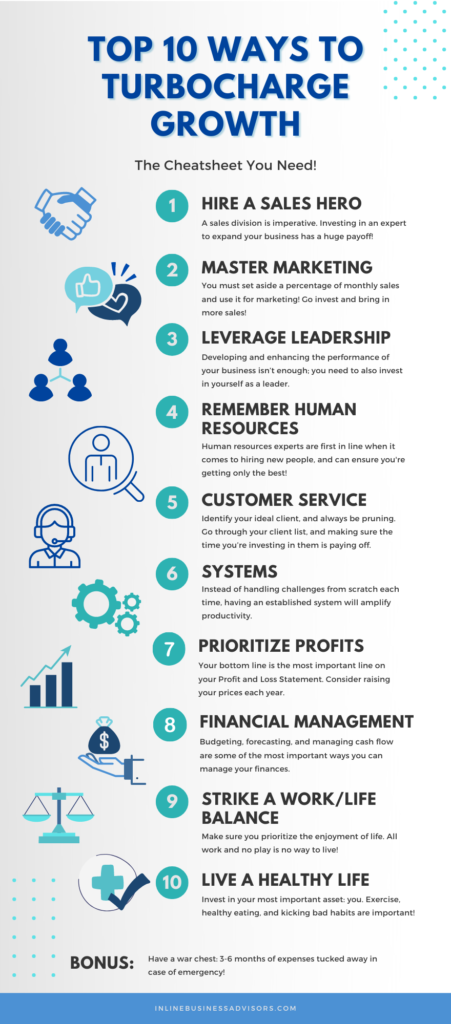Research shows that 90% of startups fail within the first year, and only one-third of the remaining businesses survive to the tenth year. One of the common pitfalls? A blind side on their finances. Financial management for business has a reputation of being this complex process small businesses may find daunting to understand, but it is crucial to thriving.
Lack of cash is a common problem that plagues failing businesses. As it is, the business world is already unforgiving. It’s hard to keep your head above water in the first place, and without a sound financial management strategy, you’ll be left gasping for air. It doesn’t matter how skilled you are or how passionate your employees are about their work. If you don’t have enough cash to pay for it all, things will quickly go downhill.
We are here to help you navigate the minefield that is managing your finances as a small business owner. Here we cover everything a small business should take care of to succeed in this competitive space.
What is Financial Management?
The critical question for any business is: “How can I take care of my customers and employees, invest in new opportunities, pay my debts, and make sure that I have enough cash on hand?” Financial management is simply the process of deciding how to allocate funds to maximize a company’s value.
The main objective is to ensure that a company stays in business for as long as possible. In other words, it’s all about cash flow management (deciding how to spend and invest money) and balance sheet health. This includes making payroll, paying bills and business expenses, assessing financing options, and minimizing operational costs.
There is no one-size-fits-all financial management strategy. Each business is unique, so financial management strategies can vary depending on the size and type of business.
Why Is Financial Management Important for a Small Business?
Adequate financial management is vital for the overall health of your business. For starters, a company without the knowledge of how much money they have will never know when it runs out of cash. This leads to poor decision-making and an increased risk of bankruptcy. A financial management strategy can help you avoid that:
- It helps you stay organized. Financial knowledge can help you understand the resources you need to run your company effectively and efficiently.
- It helps you maintain and grow wealth by ensuring that you’re not spending more than what you earn each year.
- It helps you stay on top of cash flow and track your expenditures for budgeting purposes. Knowing where all your money goes will help you find out what areas need improvement or changes to save money and increase profits.
- It helps you make accurate predictions about future cash flow. This allows you to plan ahead and prepare for unforeseen events.
- Provides accurate financial reporting for investors and financiers.

Common Financial Management Challenges Faced by Small Businesses
Small businesses are, by definition, small. This means that the owners of these companies are often limited in terms of time and resources. Consequently, staying on top of financial management for a company can be challenging when you’re also running the show.
Here are some common challenges you might face as the owner or manager of a small business, along with some advice on overcoming these issues.
Accounting and Reporting
Accounting is a major challenge small businesses experience as they struggle with juggling bookkeeping tasks while also trying to find ways to grow their business. This work requires attention to detail and a good understanding of how money flows for proper recording and management. You may have trouble keeping track of all the daily transactions in your company because they are often too numerous or disorganized.
Most accounting software will offer all-inclusive packages for individuals who need assistance with financial accounting. Tools like QuickBooks, Xero, and FreeAgent will help you with bookkeeping and financial statements to keep everything in order for financial reporting. Consider hiring an accountant as the business grows to ensure you stay ahead of your accounting needs.
Lack of an Adequate Budget
Entrepreneurs face an uphill battle in a tough economy and must take on the many challenges of being self-employed. There are many aspects of the business you need to account for when creating a budget: payroll costs, health benefits expenses, taxes, bank fees, and more.
A budget is a plan for the future. In an ideal world, you know your income and how much you’ll spend on bills and other necessities. But in reality, it’s not always that simple. With everything you have to deal with, sometimes, you will have an inadequate budget. Budgeting is essential because it helps you anticipate these challenges and avoid them in the future.
Difficulty Obtaining Loans or Lines of Credit
One major issue many small businesses face is the inability to make timely payments on accounts payable and receivable due to a lack of funds. That leads to bad credit and jeopardizes the business’ relationship with creditors. Chances are you won’t go very far if you have a bad reputation, affecting future efforts to scale.
When a company is not operating optimally financially, it becomes more difficult for them to obtain loans or lines of credit. This can cause problems down the line when they need funds to further scale their business. It’s crucial to ensure all your debts are paid promptly each month to avoid penalties or late fees that may give you a bad reputation.
Insufficient knowledge about financing options is another challenge many small business owners face. You can overcome that by seeking proper guidance from experts who can help you understand asset-based financing, accounts receivable financing, and trade credit and equipment leasing.
Tax Obligations
Running a small business is hard enough. Why would you make it harder by not paying your taxes? You can get caught up in this challenge if you don’t plan ahead, are unfamiliar with regulations, or just choose not to pay the required amount.
Some entrepreneurs might be tempted to avoid paying their fair share of the tax burden altogether because they think they’ll get away with it. Unfortunately, this will only work for so long before Uncle Sam comes knocking on your door, and the consequences can be severe.
You must understand some basic principles about taxation and incorporate them into your financial management strategy. That will help you manage your tax obligations and help you avoid any legal ramifications.

Key Performance Indicators for Financial Management
Three critical tools measure business growth: a balance sheet, cash flow report, and income statement. These tools are crucial in routine decision-making, risk assessment, and investing.
The Balance Sheet
A balance sheet is a snapshot of your company’s financial health, so understanding how it works will help you know how efficient your business is. It gives you insights into:
- Current assets (what your business owns)
- Liabilities (what it owes)
- Net worth
The balance sheet measures three key parameters of your business:
- Return on assets – this simply measures how well your business converts its assets into profits.
Return on assets = net income/average value of assets x 100
- Working capital ratio – this measures the liquidity of your business. High liquidity means you can comfortably pay off your short-term liabilities.
Working capital ratio= current assets/current liabilities
- Working capital turnover – this measures how your business uses capital to generate sales.
Working capital turnover =net annual sales / average amount of working capital for the same year
Income Statement
The data used to generate the balance sheet comes from the profit and loss statement, also known as the income statement. This record shows the overall position of the business within a given period. This is what you use to calculate profit margins and estimate the profitability of your business in relation to your goals and industry standards.
Cash Flow Report
Cash flow is the lifeblood of any business, small or big. The cash flow report helps you keep track of what’s coming in and going out, which is a key indicator of your solvency.
Operating cash flow ratio – net income + non-cash expenses + changes in working capital/current liabilities
A higher cash flow ratio means your business is doing well and can easily cover its liabilities. A low cash flow ratio is bad news and an indication there’s something you need to improve in your business.
Top Small Business Finance Management Tips
Building a small business is hard. It takes guts, it takes work, and it takes money. Maintaining your company’s finances can be daunting in the beginning, but there are some things you can do to make it easier on yourself.
1. Invest in Financial Management Software
Unless you are a trained accountant, keeping track of all the data in your business can be daunting. Good financial management software can reduce these challenges and help you stay on top of your bookkeeping. These tools will help you save time by automating processes, enhancing your record keeping, and improving the accuracy of your reports. You may also integrate this as a part of your business operating system.
2. Pay Yourself
Many small business owners often neglect themselves at the expense of the business. The way they see it, the money they’d use on themselves can serve a better purpose in the business.
While that may be true to some extent, the truth is that you are the most crucial cog in your operation. That means you must also compensate yourself for the work and time you put into your company. A motivated leader is always an asset.
3. Stick to Your Budget
Tracking your monthly expenses can help you avoid spending pitfalls in the future. The trick is observing patterns and using that to prepare in advance. Although you can’t possibly plan for all eventualities, having a budget will help you identify common challenges and solve them immediately.
4. Maintain Good Credit
Bad credit will stunt your growth and lock you out of great opportunities. One way of avoiding that is paying off your debts promptly and maintaining an impeccable credit card report.
Tracking your expenses is easier when using a credit card, and you also enjoy other perks like cash-back rewards. Always aim at improving your credit score rating and growing your limits. That will help you secure more financing and help you scale your business faster.
5. Use Loans to Scale
Taking out a loan can be scary when your business is still young. However, loans can be the vehicle you need to scale your business to new heights. The key is understanding your financing options and working with an expert to create a repayment plan. Also, ensure you do not overcommit yourself to loans. Only take what you can afford to pay based on your budget.
6. Stay on top of your taxes
Tax season need not overwhelm you. If you are struggling with your current schedule, take time to review it and create a better strategy. Instead of waiting until the end of the quarter, split the estimated payments and implement a monthly plan. Adding it to other monthly operating expenses will make it easier for you to manage.
7. Plan Ahead
The business landscape changes by the day. That said, it’s better to revise your plan upward than to have none at all. Short-term and long-term financial management plans will help you succeed faster and compete favorably in your industry.
How Financial and Accounting Software Can Enhance Financial Management
A healthy business requires regular monitoring of income and expenses, keeping track of your budget, and ensuring you have enough money to meet all your needs. This can be a difficult task when doing it manually. Financial management solutions are designed to help business owners manage their finances by taking care of the time-consuming tasks of running a company so they can focus on growing their business instead.
These solutions allow for a user-friendly interface with the data automatically updated when changes are made in the system. In addition, these programs also provide ways to automate many daily tasks, such as budgeting and payroll. Some popular examples of financial management solutions include QuickBooks Online and Xero Accounting Software.
Conclusion
Financial management is an essential practice to ensure a stable cash flow. As a small business, it is crucial that you keep your books managed to avoid any financial leaks that can affect your growth. In considering the best approach to financial management for your business, find where the gaps are and where you are particularly challenged, system-wise. Learning these will help you determine your performance indicators. Once you have a clear picture of your finances, you can figure out if you can streamline this process through financial management tools, or possibly through hiring a team.

Larry Vivola is a successful business coach who coaches entrepreneurs anywhere in the world via Zoom. If he’s not coaching he’s making meatballs and entertaining friends and family!
Free Advice Sucks! Invest in a one-time strategy session and pick Larry’s brain to help solve a pressing problem, discuss an idea, or brainstorm how to give your business performance a Turbo Boost!!! In the end your investment will yield you more money, time, and happiness!

